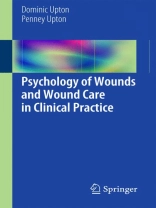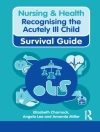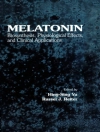This book addresses the psychological consequences of wounds and the psychological components of wound care, building on contemporary research evidence and presenting practical clinical guidelines. Particular emphasis is given to the psychological impact of both wounds and wound treatment. Implications for practice are discussed, making this book both educational and practical.
Psychology of Wounds and Wound Care in Clinical Practice is aimed at clinicians, including GPs, vascular surgeons and physicians, nurses, especially tissue viability nurses, and podiatrists, and is also of interest to academic teachers and researchers.
Tabla de materias
Psychosocial Consequences of Wounds.- Pain.- Stress.- Quality of Life and Well-Being.- Different wound type.- Treatment.- Concordance.- Family, friends and social support.- Conclusion.
Sobre el autor
Professor Dominic Upton is the Associate Dean (Education) in the Faculty of Health at the University of Canberra, Australia. A Health Psychologist by background, Dominic has had an extensive career in clinical practice, teaching and research. He has authored 19 books and nearly 200 academic articles in both professional journals and book chapters. In 2005 he was elected as a Fellow of the British Psychological Society and in 2007 he was awarded a National Teaching Fellowship, for his role in exploring and developing high quality teaching in Higher Education.
His research interests span a number of significant areas in health psychology: from the impact of psychological factors in pain, long-term conditions and wound healing, to the promotion of physical health in both adults and children. His research has explored stress, pain and well-being in those with chronic wounds and highlighted how better psychological care can promote mental and physical health including improved wound healing. This innovative research led to him being awarded the JWC prize for improving the patient experience in wound care 2012.
Dr Penney Upton is Associate Head (Learning and Teaching) in the Institute of Health and Society at the University of Worcester, UK. A Chartered Psychologist, she is also Associate Fellow of the British Psychological Society. An expert in human development and wellbeing across the lifespan, Penney has authored 10 books, 5 book chapters, and over 50 journal articles. In 2014 she was awarded a National Teaching Fellowship in recognition of her significant contribution to innovation in learning and teaching in Higher Education.
Penney has worked in both community and clinical settings. Her research spans three main areas: evidence based practice, changing health behaviours, and quality of life/wellbeing. She has a particular interest in patient reported outcomes, and is skilled in the development of psychometrically soundmeasures. Penney has published widely on the impact that living with chronic illness and long-term conditions has on quality of life and wellbeing, and is on the editorial board of the International Encyclopaedia of Quality of Life and Wellbeing Research published by Springer in 2014.












